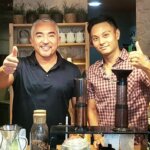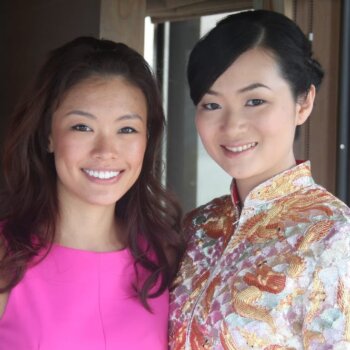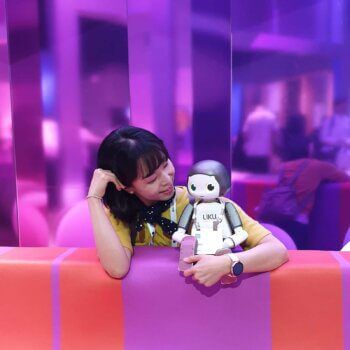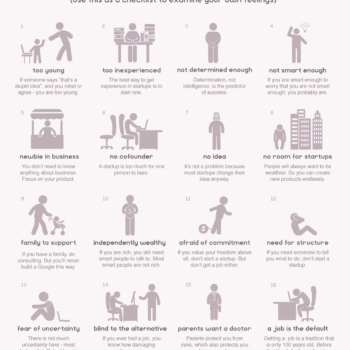Julian Lee is using AI to unlock intelligent home automation systems.
What’s your story?
I’m Julian, the founder and CEO of Ambi Labs. Born in Singapore, grew up in Hong Kong, studied in the UK, before working in Singapore, Hong Kong, and (briefly) in KL, Beijing and Taipei. I studied Mechanical Engineering in school (Mechatronics – kind of related to IoT in some ways), and after a brief stint in DSTA as a human factors engineer (during NS), I spent most of my career in strategy consulting and finance. Before setting up Ambi Labs, I was in private equity for 5 years, investing in companies ranging from startups to mining companies.
What excites you most about your industry?
The convergence of IoT and A.I. has the potential to unlock truly intelligent home automation. Many IoT devices today offer only sensors, or simple remote functionality, but we believe that users want a seamless, effortless and most importantly automatic experience. Sensors can allow the user greater insight into non-visible factors, but still requires the user to manually adjust their lifestyle – whether it’s opening a window or switching on an air purifier. Often, multiple factors affect a user making it difficult for the user to balance these factors and make the required adjustments manually. A.I. abstracts away this complexity for the user, delivering a better experience overall.
What’s your connection to Asia?
I’ve spent most of my life in Hong Kong, lived in Singapore for 5 years (I’m actually Singaporean), and have worked extensively throughout Asia (Japan, Taiwan, China, Malaysia). In setting up Ambi Labs, we wanted to develop IoT products that suit the Asian lifestyle – too many products today only focus on US or European lifestyle habits, but I believe that Asia has a great potential for the future.

Favourite city in Asia for business and why?
It’s really hard to pick just one. Hong Kong’s work culture is very fast-paced and flexible, and there is a great melting pot of cultures, making it a very international city. I find Singapore is another really great place – perhaps it’s due to the fact that most ideas in the world are still shared in English, but I find people in Singapore to be curious, innovative and many seek to truly innovate.
What’s the best piece of advice you ever received?
Just stay in the moment. As an entrepreneur, you face challenges everyday – and sometimes, it’s easy to get overly excited about certain opportunities. I believe all you can do is to overcome the immediate challenges, and many seemingly amazing opportunities can evaporate in a flash. So you need to have an internal compass as to where you’re going, and just proceed along that path one step at a time. Of course, you have to seize opportunities that show up too! But only as long as they fit into your longer term goals.
Who inspires you?
All the entrepreneurs around me. I love meeting and chatting with other entrepreneurs, it’s inspiring to hear their stories – and quite often hearing their thoughts and experiences helps me to process my own challenges!
What have you just learnt recently that blew you away?
It’s hard to pin down just one thing – I feel like I’m learning every day, and always adapting my plans to new information that comes through!
If you had your time again, what would you do differently?
Looking back, I truly believe that I made the best possible decision based on the information and resources I had at the time. But then again, who doesn’t wish they had moved faster, or more efficiently?
How do you unwind?
Enjoying the moment – whether it’s meditating, lying on a beach, or watching the sun set, I find nothing more relaxing than just switching off my mind and focusing on the sensations of the world around me.
Favourite Asian destination for relaxation? Why?
Japan – for onsens. I love just sitting in the hot water, watching the view from an outdoor bath. Bonus if it’s snowing!
Everyone in business should read this book:
The five dysfunctions of a team
Shameless plug for your business:
Ambi Climate is the world’s first A.I. enabled accessory for air conditioners. Why do you need A.I. for ACs? ACs today only consider temperature alone, but many other factors affect your comfort – humidity, changing outdoor weather, time of day, seasonality and more. Through A.I. Ambi Climate simplifies the AC control paradigm to just 1 factor: Comfort. The user just has to indicate if they are hot, cold or comfortable, and our A.I. will learn how each of these factors affect your comfort; it will then auto-adjust your AC to keep you more comfortable and save energy.

How can people connect with you?
Just drop me a note at [email protected] – happy to share entrepreneurial stories over a cup of coffee, explore partnerships, or whatever!
Twitter handle?
https://twitter.com/julianshlee
—
This interview was part of the Callum Connect’s column found on The Asian Entrepreneur:
 Callum Laing invests and buys small businesses in a range of industries around Asia. He has previously started, built and sold half a dozen businesses and is the founder & owner of Fitness-Buffet a company delivering employee wellness solutions in 12 countries. He is a Director of, amongst others, Key Person of Influence. A 40 week training program for business owners and executives.
Callum Laing invests and buys small businesses in a range of industries around Asia. He has previously started, built and sold half a dozen businesses and is the founder & owner of Fitness-Buffet a company delivering employee wellness solutions in 12 countries. He is a Director of, amongst others, Key Person of Influence. A 40 week training program for business owners and executives.
Take the ‘Key Person of Influence’ scorecard <http://www.keypersonofinfluence.com/scorecard/>
Connect with Callum here:
twitter.com/laingcallum
linkedin.com/in/callumlaing
Get his free ‘Asia Snapshot’ report from www.callumlaing.com





























